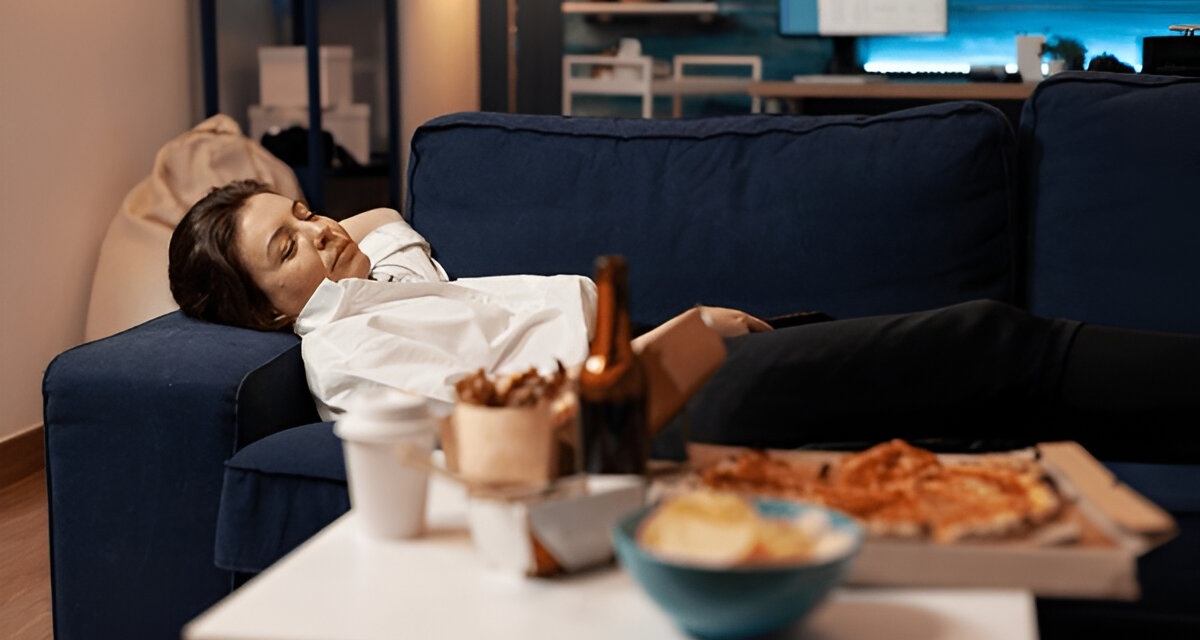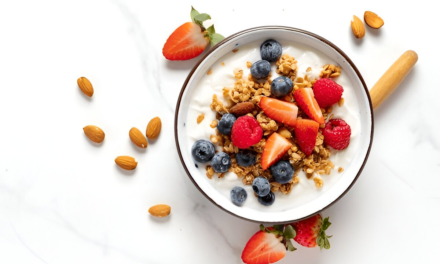Feeling sleepy after eating is a common experience, often referred to as “postprandial somnolence” or the “food coma.” While it’s normal to feel a bit drowsy after a meal, excessive sleepiness can interfere with your daily activities. Here’s a breakdown of the causes and solutions to help you manage this phenomenon:
Causes of Sleepiness After Eating
- Blood Sugar Spikes and Crashes
- Why It Happens: Eating large amounts of refined carbs or sugary foods can cause a rapid rise in blood sugar, followed by a crash. This crash can leave you feeling tired and sluggish.
- Examples: White bread, pasta, pastries, and sugary snacks.
- Digestion Demands Energy
- Why It Happens: Your body diverts energy to the digestive system to break down food, especially after a large or heavy meal. This can make you feel tired as other systems slow down.
- Examples: Large portions of fatty or protein-rich foods like burgers, fried foods, or steak.
- Tryptophan and Serotonin
- Why It Happens: Foods high in the amino acid tryptophan (found in turkey, chicken, and dairy) can increase the production of serotonin and melatonin, chemicals that promote relaxation and sleepiness.
- Examples: Thanksgiving turkey is a classic culprit!
- Overeating
- Why It Happens: Eating more than your body needs can overwhelm your digestive system, leading to fatigue as your body works harder to process the excess food.
- Dehydration
- Why It Happens: Lack of water can slow down digestion and make you feel sluggish after eating.
- Timing and Circadian Rhythm
- Why It Happens: Your body’s natural circadian rhythm can make you feel sleepy in the afternoon, and eating a meal during this time can amplify that feeling.
- Food Sensitivities or Allergies
- Why It Happens: Certain foods (like gluten or dairy) can cause fatigue in people with sensitivities or allergies, as the body works to combat inflammation.
Solutions to Combat Sleepiness After Eating
- Choose Balanced Meals
- What to Do: Opt for meals that include a mix of complex carbs, lean protein, and healthy fats to stabilize blood sugar levels.
- Examples: Grilled chicken with quinoa and veggies, or a salad with avocado and chickpeas.
- Avoid Overeating
- What to Do: Practice portion control and eat until you’re satisfied, not stuffed. Eating smaller, more frequent meals can also help.
- Limit Refined Carbs and Sugars
- What to Do: Reduce your intake of sugary snacks and refined carbs. Instead, choose whole grains, fruits, and vegetables for sustained energy.
- Stay Hydrated
- What to Do: Drink water throughout the day and with meals to aid digestion and prevent dehydration.
- Take a Short Walk
- What to Do: A 10-15 minute walk after eating can improve digestion and boost energy levels by increasing blood flow.
- Avoid Heavy, Fatty Meals
- What to Do: Limit foods high in unhealthy fats, as they take longer to digest and can make you feel sluggish.
- Time Your Meals Wisely
- What to Do: If you tend to feel sleepy in the afternoon, eat a lighter lunch and save heavier meals for earlier in the day.
- Get Enough Sleep
- What to Do: Ensure you’re getting 7-9 hours of quality sleep each night to reduce overall fatigue.
- Identify Food Sensitivities
- What to Do: If you suspect certain foods are making you tired, try an elimination diet or consult a healthcare professional for testing.
- Limit Caffeine and Alcohol
- What to Do: Both caffeine and alcohol can disrupt your energy levels and sleep patterns, so consume them in moderation.
When to See a Doctor
If you consistently feel extremely sleepy after eating, it could be a sign of an underlying condition, such as:
- Diabetes: Fluctuating blood sugar levels can cause fatigue.
- Iron Deficiency Anemia: Low iron levels can lead to tiredness.
- Hypothyroidism: An underactive thyroid can cause fatigue.
- Food Intolerances: Conditions like celiac disease or lactose intolerance may cause fatigue after eating certain foods.
If your sleepiness is severe or persistent, consult a healthcare professional for further evaluation.
Final Thoughts
Feeling a little sleepy after eating is normal, especially after a large or carb-heavy meal. However, by making mindful food choices, staying hydrated, and adopting healthy habits, you can minimize post-meal fatigue and maintain your energy levels throughout the day.











